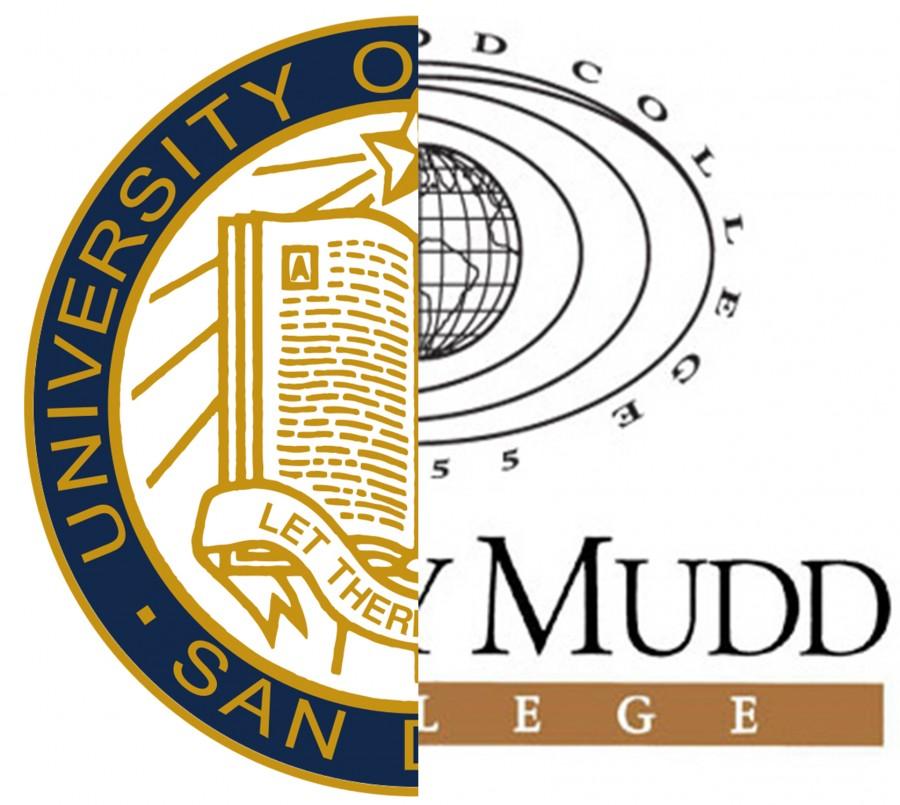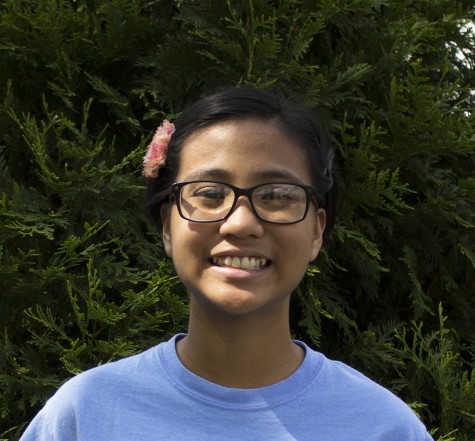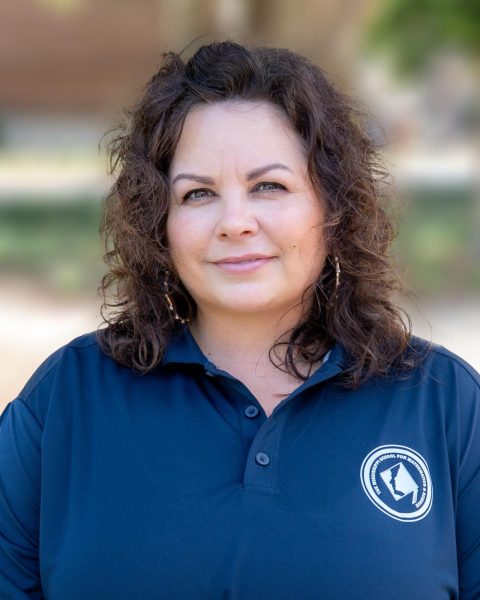Large University vs. Small College: Ali Goes to California
logos courtesy of UCSD and Harvey Mudd, graphic by West Givens
The logos of University of California San Diego and Harvey Mudd College
April 25, 2016
Second semester senior year is a time for seniors to miss lots of school, especially for college visits, in attempt to figure out where they might spend the next four years of their lives. Senior Ali Otondo has been flying back and forth from Mississippi to faraway California for this very reason, and she has returned with some insights on the pros and cons of a large university and a small college. In addition, she has made a final decision on which to choose.
Otondo was accepted to both the University of California San Diego and Harvey Mudd. The first is a public university while the second is a private liberal arts college. Otondo plans on pursuing a degree in engineering, which both schools can offer. However, Otondo committed to Harvey Mudd College. Below are her reflections from both institutions and her reasons for committing to Mudd.
UC San Diego
The first thing that struck Otondo was UC San Diego’s size. She said, “It was really big, so I didn’t feel like I would fit in. I would just be another student.” This feeling was further emphasized when she toured the school. However, because of its large size, Otondo knew it had “lots of resources, lots of people to talk to and lots of connections.”
Though UC San Diego is known for being a top university in research, Otondo felt that research itself was not for her. Attending a panel held by the school’s department leaders, the speakers made it obvious that their main emphasis was on producing research. She said, “their whole presentation was about research.”
Otondo also said she could tell that “they valued the graduate students and research over the undergraduate students.” This was evident when someone asked the panelists what percentage of undergraduate students do internships. The panelist did not know the number of undergraduates who did so, but he did know the percentage of grad students.
Because their main goal is to produce researchers, the school itself is very rigorous. However, Otondo noticed that UCSD was the “number one surfing school,” and she wondered how the students had time to surf if they spent much of their time researching and studying. Overall, Otondo believed that the school’s main goal was not something she was interested in. “Instead of getting a good education, they focused on doing as much research as you can.”
Harvey Mudd
A week after UCSD, Otondo visited the college around a 100 miles north from UCSD and away from the beach. Otondo actually was accepted to a fly-in program to Harvey Mudd and visited the school last November. She also was one of the roughly 40 finalists selected from all the 2016 applications to interview for Harvey Mudd’s prestigious presidential scholarship, a four-year full tuition scholarship.
Otondo is one of the eight selected students who received Harvey Mudd’s presidential scholarship.Even before she would find out if she received it, she had already made the decision to attend.
There are a little more than 800 students at Harvey Mudd with roughly 200 students in each class. One of the most striking things Otondo found about the college was the support towards incoming freshmen. She said, “The president of Harvey Mudd memorizes the names and faces of every single freshman. Though it’s difficult to keep up with 800 students, she makes a point to memorize them their freshman year.” Upperclassmen are also very supportive of freshmen. “They care so much!” exclaimed Otondo with a smile.
In addition, Otondo found that the classes have an environment that she would thrive in. For one, she noticed that the school promoted collaboration between students. She said, “Whenever I would sit in a class, they would have some form of lecture, but in every single class I sat in, they’d work with their neighbors and they would solve it together.” To ensure that the students would work together, Otondo said that the teachers purposefully make the homework assignments harder so each student is forced to find someone to share the assignment. Even the teachers are supportive of all students. Otondo said that if a student misses two days of class consecutively, teachers will report it to the dean, but the purpose is to make sure the student is okay, provide tutoring or other mental or physical support.
The second thing that Otondo loved about the school was the honor code. At first, she believed that no one at the school actually followed the honor code. However, she found this was untrue. Each and every student obeys the honor code and because of that, all the tests are take home tests. “You can take it in a classroom, your bedroom, or go outside. One girl takes it in the elevator of a dorm hall because it’s quiet there!” said Otondo. The honor code not only applies to academics, but also in residential life.
“Everyone trusts everyone,” said Otondo, “In the laundry room, everyone leaves their detergent in the laundry room, and in the mail rooms, none of the slots have locks or doors on them. Of course, it’s against the law to take things, but they leave it open because they trust all their students.”
Although Harvey Mudd is a small college, it has lots of resources because it is a member of the Claremont Colleges Consortium. Otondo also loved the school’s emphasis on education and she is extremely excited to attend Harvey Mudd in the fall.









